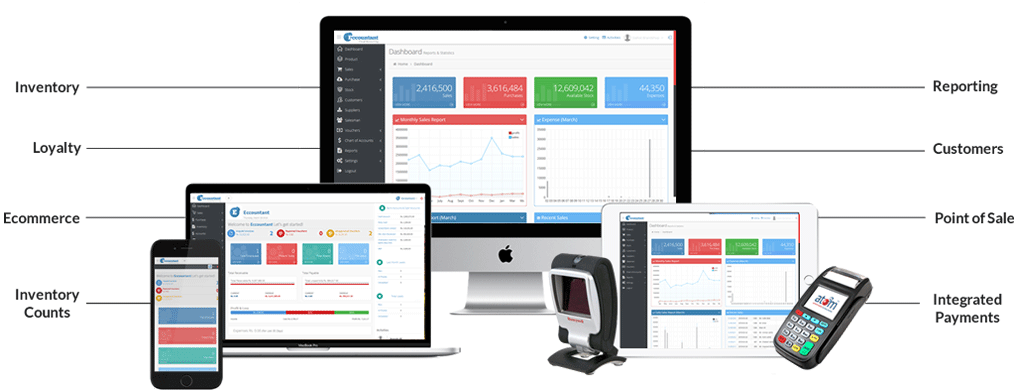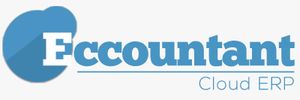Efficiency is the lifeblood of small businesses. In an environment where every resource counts, optimizing operations can make the difference between thriving and merely surviving. One powerful tool to enhance efficiency is an integrated ERP (Enterprise Resource Planning) system. But what exactly is an ERP system, and how can it help small businesses streamline their operations? Let's dive in.
What is an ERP System?
ERP stands for Enterprise Resource Planning. At its core, an ERP system integrates various functions of a business into a unified system to streamline processes and information across the organization. From finance to human resources, from supply chain to customer relationship management, an ERP system provides a comprehensive view of business operations.
Historically, ERP systems evolved from material requirements planning (MRP) systems used in manufacturing. Over time, they have expanded to cover a wide range of business activities and industries, making them invaluable tools for businesses of all sizes.

The Challenges Faced by Small Businesses
Small businesses often grapple with a range of inefficiencies. These can include manual data entry, disparate software systems, poor communication, and lack of real-time information. Such inefficiencies not only waste time and resources but also hinder growth and profitability.
How an Integrated ERP System Works
An integrated ERP system brings all business functions together into a single, coherent system. This integration means that data flows seamlessly between departments, ensuring that everyone has access to the same, up-to-date information. Key features of an integrated ERP system include modules for finance, HR, sales, inventory, and more.
Streamlining Operations
One of the most significant benefits of an integrated ERP system is the automation of routine tasks. By automating processes like invoicing, payroll, and inventory management, businesses can save time and reduce errors. Centralized data management means that information is entered once and is accessible across the organization, eliminating the need for redundant data entry and reducing the risk of mistakes.
Improving Communication and Collaboration
With an integrated ERP system, real-time data access becomes a reality. This means that team members can access the information they need, when they need it, facilitating better communication and collaboration. Enhanced teamwork leads to faster problem-solving and more efficient operations.
Enhanced Decision Making
Data-driven insights are another critical advantage of ERP systems. By providing detailed reports and analytics, ERP systems enable business owners and managers to make informed decisions. Predictive analytics can forecast trends and help businesses plan for the future, ensuring they stay ahead of the competition.
Inventory Management
Accurate stock levels are crucial for any business that deals with physical products. An ERP system ensures that inventory data is always up-to-date, helping businesses maintain just-in-time inventory levels. This reduces the costs associated with overstocking and stockouts, improving overall efficiency.
Financial Management
Real-time financial tracking is a game-changer and warehouse management software for small businesses. An integrated ERP system provides up-to-the-minute financial information, helping businesses manage cash flow, monitor expenses, and ensure timely payments. Simplified reporting and compliance features also make it easier to meet regulatory requirements and avoid costly penalties.
Customer Relationship Management (CRM)
An integrated ERP system includes robust CRM capabilities, giving businesses better insights into customer behavior and preferences. This leads to improved customer service, higher satisfaction rates, and increased loyalty. Happy customers are more likely to become repeat customers, driving growth and profitability.
Scalability and Flexibility
As small businesses grow, their needs change. An integrated ERP system is scalable, meaning it can grow with the business. Whether adding new users, expanding into new markets, or launching new products, an ERP system can adapt to changing requirements. Customization options allow businesses to tailor the system to their specific needs.
Cost Efficiency
While the initial investment in an ERP system can be significant, the long-term savings are substantial. By reducing operational costs through increased efficiency and automation, businesses can achieve a high return on investment (ROI). The cost savings from streamlined operations, reduced errors, and better resource management quickly outweigh the initial outlay.
Security and Compliance
Protecting business data is paramount in today’s digital age. ERP systems offer robust security features, including user access controls and data encryption, ensuring that sensitive information is safeguarded. Additionally, ERP systems help businesses meet regulatory requirements, reducing the risk of compliance issues and associated fines.
Case Studies of Successful ERP Implementation
Consider the case of a small manufacturing company that implemented an ERP system to streamline its operations. Before the implementation, the company struggled with manual inventory management and frequent stockouts. After integrating an ERP system, the company saw a 30% reduction in inventory costs and a significant improvement in order fulfillment times.
Another example is a retail business that used an ERP system to unify its sales, inventory, and customer service functions. The result was a more efficient operation, higher customer satisfaction, and a 20% increase in sales within the first year.

Conclusion
An integrated ERP system can significantly improve the efficiency of small businesses by streamlining operations, enhancing communication, providing data-driven insights, and ensuring scalability. While the initial investment may seem daunting, the long-term benefits far outweigh the costs. Small businesses looking to thrive in today’s competitive environment should seriously consider implementing an ERP system.
FAQs
What is the average cost of an ERP system for small businesses?
The cost of an ERP system can vary widely depending on the size of the business and the complexity of its needs. On average, small businesses can expect to spend between $10,000 and $150,000 for an ERP system, including implementation and training.
How long does it take to implement an ERP system?
The implementation time for an ERP system can range from a few months to a year, depending on the size of the business and the complexity of its processes. Planning, customization, training, and data migration all contribute to the timeline.
Can ERP systems be customized for specific industries?
Yes, many ERP systems offer industry-specific modules and customization options to meet the unique needs of different sectors, such as manufacturing, retail, healthcare, and more.
What are the common challenges during ERP implementation?
Common challenges include resistance to change from employees, data migration issues, underestimating the time and resources required, and inadequate training. Proper planning and communication can help mitigate these challenges.
How can small businesses ensure successful ERP adoption?
To ensure successful ERP adoption, small businesses should involve key stakeholders in the planning process, provide comprehensive training for employees, and work with experienced ERP consultants. Regularly reviewing and adjusting the system as needed also helps maintain its effectiveness.
